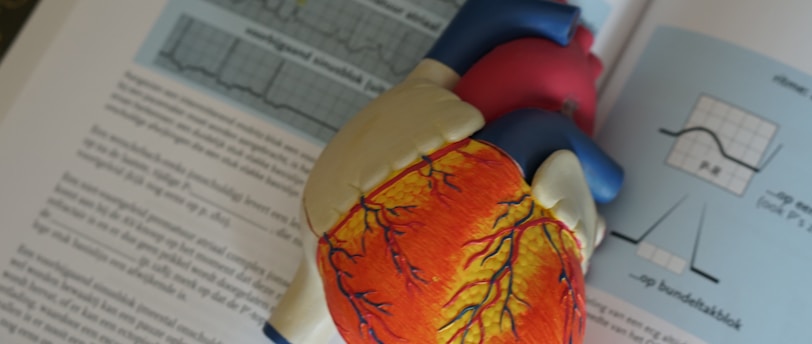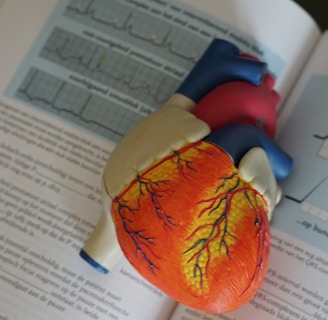ASCVD Risk Calculator | ASCVD Risk Calculator App
Knowing your ASCVD risk empowers you to take action—whether through lifestyle changes, medication, or closer monitoring. Use the calculator below to check your risk and take the first step toward a healthier heart!


Understanding Your Cardiovascular Risk: A Guide to the ASCVD Risk Calculator
Heart disease remains the leading cause of death worldwide, but many cardiovascular events can be prevented with early risk assessment and intervention. The Atherosclerotic Cardiovascular Disease (ASCVD) Risk Calculator is a powerful tool that estimates your 10-year risk of developing heart disease or stroke.
In this article, we’ll break down:
Key terms and why they matter
How to interpret your results
How the calculator works
Key Terms and Their Importance
1. Atherosclerotic Cardiovascular Disease (ASCVD)
Definition: A condition where plaque builds up in the arteries, leading to heart attacks, strokes, or peripheral artery disease.
Why it matters: Early detection helps prevent severe complications.
2. Total Cholesterol
Definition: The total amount of cholesterol in your blood (includes HDL, LDL, and triglycerides).
Why it matters: High levels increase plaque buildup in arteries.
3. HDL Cholesterol ("Good" Cholesterol)
Definition: Removes excess cholesterol from arteries.
Why it matters: Higher HDL lowers ASCVD risk.
4. Systolic Blood Pressure
Definition: The pressure in your arteries when your heart beats.
Why it matters: High blood pressure damages arteries over time.
5. Diabetes Status
Why it matters: Diabetes accelerates artery damage, increasing ASCVD risk.
6. Smoking Status
Why it matters: Smoking damages blood vessels and worsens cholesterol.
How to Use the ASCVD Risk Calculator
Step-by-Step Input Guide:
Age (20-79 years) – Risk increases with age.
Gender – Men generally have higher risk than premenopausal women.
Race/Ethnicity – Some groups (e.g., African Americans) have higher risk.
Total & HDL Cholesterol – Enter lab results (mg/dL or mmol/L).
Blood Pressure – Enter your latest reading (mmHg or kPa).
Medications & Conditions – Check if you’re on BP meds, have diabetes, or smoke.
Click "Calculate Risk" to see your results.
Understanding Your Results
After calculation, you’ll see:
1. Your 10-Year ASCVD Risk (%)
Low Risk (<5%) – Keep up healthy habits!
Borderline (5-7.4%) – Monitor risk factors.
Intermediate (7.5-19.9%) – Consult a doctor for prevention strategies.
High Risk (≥20%) – Seek medical advice for intensive management.
2. Risk Interpretation
Explains what your score means in plain language.
3. Risk Categories
A visual guide comparing your result to standard risk levels.
How the Calculator Works
The ASCVD Risk Calculator is based on the Pooled Cohort Equations, a formula developed by the American Heart Association (AHA). It considers:
Age, gender, and race (some groups have higher baseline risks).
Cholesterol levels (high LDL and low HDL increase risk).
Blood pressure (higher pressure = higher risk).
Lifestyle factors (smoking and diabetes significantly raise risk).
Note:
This is an estimate, not a diagnosis.
Results may vary based on additional health factors.
Always discuss with a healthcare provider for personalized advice.
Conclusion
Knowing your ASCVD risk empowers you to take action—whether through lifestyle changes, medication, or closer monitoring. Use the calculator below to check your risk and take the first step toward a healthier heart!
Have questions? Share your results in the comments or consult a doctor for a full evaluation.
Final Tips to Lower ASCVD Risk
✅ Eat a heart-healthy diet (Mediterranean diet is great!)
✅ Exercise regularly (150 mins/week of moderate activity)
✅ Quit smoking
✅ Manage blood pressure and cholesterol
✅ Control diabetes if applicable
Understanding and acting on your risk can significantly improve your long-term heart health. Stay proactive! ❤️
Read More:
